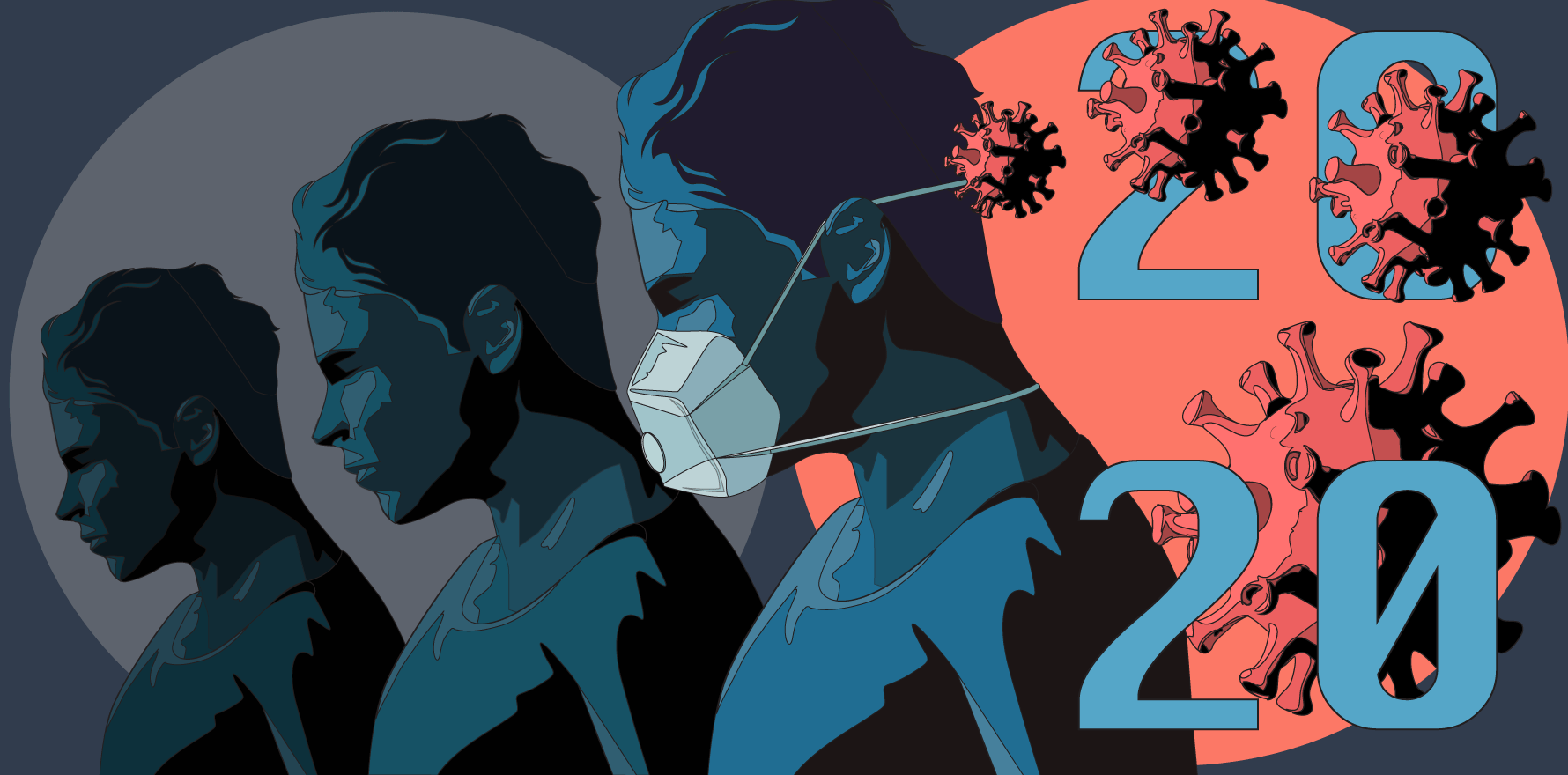An Australian doctor shares their experience with a harrowing mental illness, and the unexpected benefits of the pandemic.
COVID-19 has caused more than two million deaths.
The pandemic and the response to it have had terrible social and economic impacts and adverse effects on mental health.
My father died from COVID-19. Due to restrictions, I did not see my children for six months.
2020 was a good year.
I had stopped work on Christmas Eve, 2018.
I was harming and assaulting people. I did not want to harm and assault people.
I was guilty and ashamed, upset for the victims, and fearful of being arrested and sent to jail.
On most days, I went to the police station to turn myself in for these assaults. I would describe the incident. The police officer would write down the details and check for reports. The incidents had not been reported.
Nevertheless, to mitigate the risk of causing harm to more people, I kept each hand clenched around the opposite upper arm, and I avoided shopping, driving, and people.
There was no choice. I was being controlled by five faceless men via a network of computers and data signals. I could hear the men talking about me. The men and the computers made me harm and assault people. They put me in situations where I would harm and assault people. They made me think and act. I could smell woodsmoke, cinnamon and soap. I saw bodies on footpaths. The computers also made me harm and assault people who were out of range, and out of sight. They did this using telekinesis.
Ultimate control was mine for the taking, and the thoughts were compelling. Keep calm and carry on.
I had psychological therapies and medications. Nothing changed.
I was referred for clozapine, the last-resort antipsychotic drug. I applied for a disability support pension.
The plan for clozapine was deferred while I tried a new drug. About six weeks later, there was a difference. I was less persecuted and less anxious. The fears and the beliefs that I was causing harm were less intense. By the start of this year, the men and their computers must have packed up and gone home. The telekinesis diminished.
In February 2020 I started tutoring groups of students. This was confronting. There were people in the streets, and students in the tutorial rooms. I harmed them.
Then there was COVID-19, and things got better.
Physical distancing meant that everyone had an exclusion zone. Shops and footpaths were less crowded. I was less likely to harm people.
I returned to work, consulting by video, on two days per week. Medicare enabled telehealth, and telehealth enabled me to work. I would assault patients if I saw them in person.
The tutorials changed to Zoom. I preferred this.
As Melbourne went into lockdown in response to the second wave, I was starting to do quite well. I no longer crossed my arms. I could walk past people without harming them. I could go shopping. I was okay at a time when most people were despondent, fearful, or worse.
I am now thinking about a return to in-person consultations and tutorials. Once COVID-19 vaccines are available, I will be vaccinating people against the disease that has been good for me.
At the start of 2020, I was a healthcare consumer in mental lockdown. Now, I am a healthcare provider in mental not-far-off normal.
2020 will have been a good year for some people: those who have had positive changes in health, relationships, or work; and those who have become parents.
But there has been suffering, distress, and mental illness for so many people through the pandemic and through the response to the pandemic. With or without a pandemic, many people with mental illness do not do very well.
I have been lucky. I have had phenomenal care and support from my family and from mental health services.
There has been no response to my pension application. I am going to put that on hold.
Hopefully, compliance with restrictions and vaccination will reduce people’s risk of COVID-19.
Hopefully, self-care, care from family and mental health services, and good luck, will reduce the risk of a relapse.
The author’s professional practice is monitored by a senior doctor, a psychiatrist, and the Medical Board of Australia. There are health-related conditions on the author’s medical registration.
Medical practitioners and medical students who need confidential help and support for concerns about their health and wellbeing should contact their GP and go to drs4drs.com.au. For urgent help in crisis, contact Lifeline on 13 11 14.


